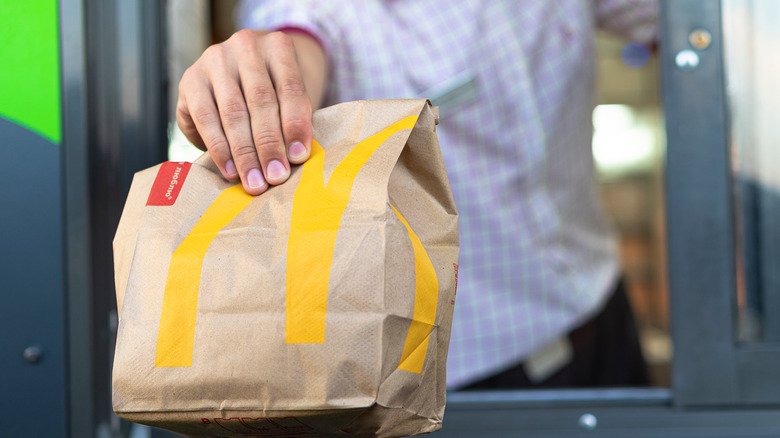Some Cities Are Banning Fast Food Drive-Thrus. Here's Why
It seems like there's a fast food drive-thru on every corner, and certain cities are taking steps to make sure that they don't get any more prevalent than they already are. Long Beach and Minneapolis are just two of the spots nationwide that have moved to ban the construction of new drive-thrus via ordinances and other restrictive legislation.
Wondering why all the hoopla over something that many people use on a daily basis? Drive-thrus can cause unfortunate side effects, like unsightly litter and emissions. Minneapolis, in particular, is aiming for a greenhouse gas reduction of 80 percent over the next three decades, per NPR, and this is one way it plans on getting to that goal. In addition to reducing those Earth-impacting aspects, the idea is also to make areas more walkable and pedestrian-friendly.
While those improvements are certainly beneficial to the planet and its inhabitants, there's more at play in the maneuver to stop additional drive-thrus from being built.
The health reasons for banning drive-thrus
There's a lot of research out there that connects fast food with obesity, and thus conditions like heart disease, diabetes, arthritis, some cancers, stroke, and so on, per News Medical. So, another prong of the drive-thru ban is that it will hopefully help people make better food choices. Of course, these measures will only impact new construction, so existing fast food restaurants are here to stay (as long as they're profitable, anyway).
Nearly half of the restaurants in South Los Angeles are fast food spots. The area also has a high obesity rate, with 30 percent of children and 37 percent of adults falling in unhealthy weight ranges, according to NPR. In 2008, South LA banned any new stand-alone fast food places, reported Today. However, a 2015 study by RAND Corporation found that obesity rates in the area actually rose, despite those efforts. Hopefully, the newer measures popping up across the country will prove more effective.

